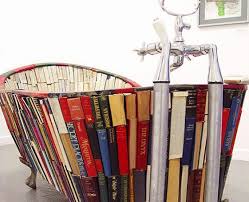So, diet books, huh? (Don’t worry; you haven’t come to the wrong website.)
The Fast Diet. The 5:2 diet. The Super Juice Diet. The Atkins Diet. The New Atkins Diet. The H2O Diet (really?!?). The Lemon Detox (mm, tasty). And that’s leaving aside the more emotive titles: Slim to Win. Skinny Bitch. Clean and Lean… (Meaning what, exactly? That fat people are dirty?) 
Business, of course, is booming. (I even own one of these books myself – although not the disturbingly-named ‘Skinny Bitch’, I hasten to add.) I’m not saying that diets don’t work, per se, I’m just asking – by show of hands – who here doesn’t already know exactly how to lose weight?
[Insert drumroll.] Yes, you guessed it! Healthy eating and exercise.
That’s not how we are, though, is it? We humans. We want to believe in magic, in miracles. Why – in today’s culture of instant gratification – would we want to eat more vegetables and fewer crisps when a nice man called Atkins is telling us, actually, we can shrink to the width of a Twiglet whilst stuffing our pie-holes with bacon all day?
Which brings me, at last, to the point of this blog.
Tap the phrase how to write a book into the Amazon search bar and what do you get? 14,784 results. There’s Novel Writing for Dummies, and How Not To Write a Novel (this one, to be fair, is quite funny), something (I haven’t read) with the frankly extraordinary title of Piss Or Get off the Pot: Time to Write Your Novel, and Louise Doughty’s rather good A Novel in a Year (which doesn’t really expect you to write your novel in a single year, but A Novel in Three to Four Years On Average would certainly be a less enticing title).
‘What’s that?’ says the author of A Novel In Six Months. ‘You’re going to waste a whole year on that shit? If you buy my book, you’ll be done in six months… then the other six months you’ll be sunning yourself in the Bahamas on the proceeds…’
‘Look, I don’t want to interrupt, but—’
‘Who the hell are you?’
‘I’m the author of Book in a Month.’
‘Ah.’
You’ve got to love an optimist. (Actually, no you haven’t. I can’t bloody stand them myself.) These listings are full of them: ‘No Plot? No Problem!’ screams one. ‘Writing the Breakout Novel.’ ‘How to Write a Damn Good Novel.’ Best of all is: ‘Novel: Plan it, Write it, Sell it.’ I don’t know who author Lynne Barrett-Lee is but I probably need her to stand in my living room shouting at me. ‘But, Lynne, this character – I’m not really feeling him… and this scene, it’s not working somehow…’
To which Lynne would reply: ‘What are you whining about, you dick? I’ve told you everything already – just plan it, write it, sell it!’ 
At this point I should say: this is not, repeat not, a rant against books about writing. I’ll freely confess I own loads of the buggers myself. I’m a magpie for quotes about writing (I’ve gathered them into a Scrivener file) and, loathsome hypocrite that I am, I’d actually like to write one myself, one day, when I’ve earned the right to do so with a published book or two. I will also confess that I teach short story writing (hence the large collection of said books) so, clearly, my stall is already set out on this issue: many aspects of the craft of writing can be taught – or at least semaphored, for the eagle-eyed to pick up on – but it’s also time to admit to myself that the purchasing of a book entitled Nail Your Novel will not (and did not, in fact) enable me to nail my novel. Not that it wasn’t a sensible, thoughtful, insightful read: it’s just that these books are the literary version of The Lemon Detox and, while they might give you a shot in the arm on occasion – and frequently do – at their most basic level they’re cramming your pie-hole with bacon when really it’s cabbage and tap dance you need. By all means read a book on technique. Take a course. Get some practise. And never say never: it may be that 79.7% of published authors owe their success to Book in a Month, or Book in a Week, or Book in the First Seven Seconds of Post-Coital Bliss, in which case, yes, I’ll look foolish. But one of my loveliest former students (who’s recently tasted some much-deserved literary success) once told me the best piece of advice I gave her was this: ‘No one else is going to write it for you.’
The unpalatable truth is that catch-all solutions don’t exist: the fact that you’ve purchased Piss or Get off the Pot will ultimately make no difference. You may piss, yes. But, equally, and more likely, you’ll stagger off the pot – or remain there, trousers round your ankles, no closer to nailing, stapling, or building your novel from spare bits of string than you would have been sans pot-pissing guide. Any shot in the arm will have dwindled around page 12 – if you’re anything like me, that is – and you’ll face the cold, hard truth that no one (not even Lynne Barrett-Lee) is going to write the book for you. And even if she did, she’d be unlikely to finish it in a single frigging month. So step away from A Novel in Two-Eighths of a Nano-Second and welcome to the real world.
You’re going to hate it.




